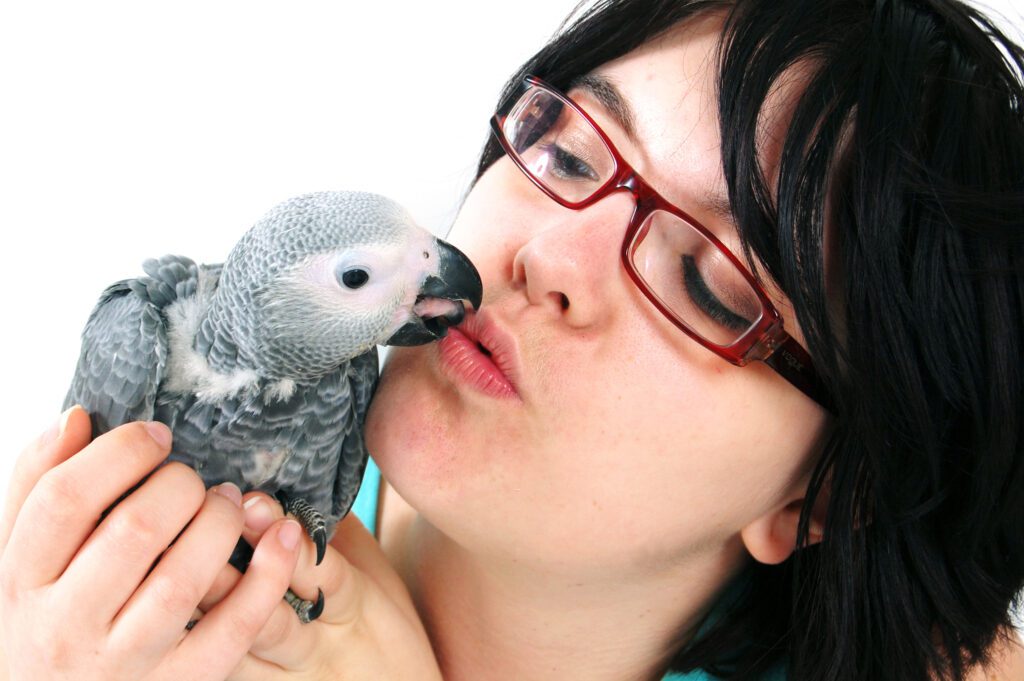
Free Delivery
On Orders Over £40
On Raw Orders Over £100

Taking care of a parrot involves several important aspects to ensure their health, happiness, and well-being. Here are some guidelines for looking after your parrot:
1. Proper Housing: Provide a spacious and safe enclosure for your parrot. The cage should be large enough for them to move around, stretch their wings, and play. It should also have sturdy bars with appropriate spacing to prevent escapes or injury. Include perches of different sizes and materials to promote foot health and exercise.
2. Balanced Diet: Offer a nutritionally balanced diet for your parrot. This includes high-quality pellets specifically formulated for their species, a variety of fresh fruits and vegetables, and occasional seeds or nuts as treats. Ensure that their food and water bowls are clean and replenish them with fresh food and water daily.
3. Mental Stimulation: Parrots are intelligent creatures that require mental stimulation to prevent boredom and promote well-being. Provide toys, puzzles, and interactive activities to keep them mentally engaged. Rotate toys regularly to maintain their interest.
4. Social Interaction: Parrots are social animals and thrive on companionship. Spend quality time with your parrot daily, engaging in activities like talking, playing, and gentle handling. If possible, consider getting a companion parrot or providing opportunities for socialization with other parrots.
5. Environmental Enrichment: Create an enriching environment for your parrot. Offer branches for climbing, swings, and ladders for physical exercise. Provide opportunities for foraging by hiding treats or food puzzles to stimulate their natural instincts.

6. Regular Veterinary Care: Schedule regular check-ups with an avian veterinarian to ensure your parrot’s health. Routine examinations, vaccinations (if necessary), and parasite prevention are important. If you notice any signs of illness, such as changes in appetite, behaviour, or feather condition, seek veterinary attention promptly.
7. Cleanliness and Hygiene: Maintain a clean living environment for your parrot. Regularly clean their cage, perches, and toys to prevent the build-up of waste or bacteria. Also, maintain good personal hygiene by washing your hands before and after handling your parrot.
8. Safe Environment: Ensure that your home is safe for your parrot. Remove toxic plants, secure electrical cords, and keep harmful substances like chemicals, pesticides, and household cleaners out of their reach. Avoid exposing them to drafts, extreme temperatures, or direct sunlight.
9. Flight and Exercise: If possible, provide opportunities for your parrot to exercise by allowing them to fly in a safe, supervised area. Flight promotes physical fitness and mental stimulation. Regular exercise helps prevent obesity and related health issues.
10. Love and Patience: Parrots are social and intelligent animals that thrive on love, attention, and positive reinforcement. Build a bond with your parrot through patience, gentle handling, and consistent training. Treat them with kindness, respect, and understanding.
Remember, each parrot is unique, and it’s important to learn about the specific needs, behaviours, and preferences of your parrot’s species. By providing proper care, attention, and a stimulating environment, you can ensure a happy and healthy life for your feathered friend.
Sign up to get exclusive deals in your inbox.
We won't share your email address.